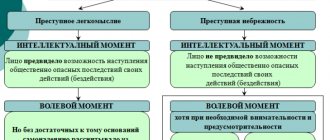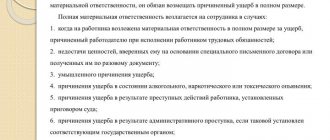Measures of assigned responsibility
The article provides for the following penalties:
- Imprisonment for up to three years or forced labor for the same period. For officials the punishment is up to five years.
- A fine of up to 300 thousand rubles. For officials, the punishment is up to 500 thousand.
- Compulsory labor for up to 360 hours, correctional labor for up to one year, or a fine of up to 300 thousand rubles for part 3 of Art. 354.1 of the Criminal Code of the Russian Federation.
The article does not provide for exceptions.
Criminal liability is provided for the rehabilitation of Nazism
Groups Prosecutor's Office of the Penza Region Clarifications of legislation
June 23, 2022 at 4:24 pm
Author: Prosecutor's Office of the Penza Region
Log in to the site and you can join the group.
The Criminal Code of the Russian Federation establishes responsibility for the rehabilitation of Nazism in accordance with Article 354.1 of the Criminal Code of the Russian Federation.
This article protects public relations to ensure the peace and security of mankind, preserving the historical memory of the peoples of the world about the facts of the commission of international legal crimes against the peace and security of mankind by the Nazis during the Second World War, condemned by the verdict of the International Military Tribunal for the trial and punishment of the main war criminals European Axis countries, as well as to preserve the historical memory of the activities of the USSR during the Second World War and its significant and decisive role in the victory over fascism, the days of military glory and memorable dates of Russia associated with the defense of the Fatherland, symbols of the military glory of Russia.
No considerations of any nature, be it political, economic, military or any other nature, can serve as a justification for Nazism, and no actions to rehabilitate Nazism are and cannot be recognized as legal.
Nazism is German fascism, which is the ideology of militant racism, anti-Semitism and chauvinism, the political movements based on it, as well as the open terrorist dictatorship of one dominant party, the repressive regime it created, aimed at suppressing progressive social movements, destroying democracy and starting war.
Article 354.1 of the Criminal Code of the Russian Federation establishes criminal liability for the rehabilitation of Nazism, expressed in:
- denial of the facts established by the verdict of the International Military Tribunal for the trial and punishment of the main war criminals of the European Axis countries;
- approval of crimes established by the specified verdict;
- dissemination of deliberately false information about the activities of the USSR during the Second World War, committed publicly.
Denial of the facts established by the verdict of the International Military Tribunal for the trial and punishment of the main war criminals of the European Axis countries is understood as a statement, communication to an indefinite circle of persons about the non-recognition of the existence of such facts, renunciation of them, exclusion of the existence, refutation of the decisions of the International Nuremberg Military Tribunal, the trial of military criminals, former leaders of Nazi Germany and the countries of the Hitlerite coalition, the Nazi Party, criminal organizations of the Gestapo, SD, SS, who committed crimes against peace and humanity during the Second World War, found guilty and sentenced to death or other punishments.
The approval of the crimes established by this verdict is understood as a statement, a message to an indefinite circle of people about the recognition of the admissibility of the international legal crimes committed by the Nazis during the Second World War, about their justification, approval, correctness, deserving of support and praise.
The dissemination of deliberately false information about the activities of the USSR during the Second World War, made publicly, refers to statements, messages to an indefinite circle of people that do not correspond to the reality of information about the activities of the USSR during the Second World War, incorrect presentation of historical facts about the decisive and significant role of the USSR in the victory over fascism, their distortion or silence about them, reports of war crimes that did not take place in reality, allegedly committed by the USSR itself during this war.
The article also provides for responsibility for:
- commission of these acts by a person using his official position or using the media, as well as with the artificial creation of evidence of accusation;
- dissemination of information expressing obvious disrespect for society about the days of military glory and memorable dates of Russia related to the defense of the Fatherland, as well as desecration of symbols of military glory of Russia, committed publicly.
Days of military glory and memorable dates in Russia are established by the Federal Law of the Russian Federation dated March 13, 1995 No. 32-FZ “On the days of military glory and memorable dates in Russia.” Russian Military Glory Days are days of military glory (victory days) of Russia to commemorate the victories of Russian troops that played a decisive role in Russian history. Memorable dates in Russia associated with the defense of the Fatherland are dates associated with the most important historical events in the life of the state and society.
The expression of obvious disrespect for society when disseminating information about the days of military glory and memorable dates of Russia related to the defense of the Fatherland, as a sign characterizing the internal essence of the actions of the guilty person, is understood as a demonstration of disdain for such days and dates, reporting about them deliberately false, defamatory , offensive information to an unspecified circle of people.
The desecration of the symbols of Russia's military glory is understood as the commission of actions that are incompatible with the purpose of such symbols, that are disgraceful, humiliating, immoral, and cynical. For example, applying offensive, obscene, mocking inscriptions, Nazi symbols, drawings, signs, pouring paint, sewage.
The maximum prescribed punishment under this article is a fine in the amount of up to 300,000 rubles or in the amount of wages or other income of the convicted person for a period of up to 2 years, or compulsory work for a period of up to 360 hours, or correctional labor for a period of up to 1 year.
Persons who have reached the age of 16 at the time of committing the crime are subject to criminal liability under this article.
Based on materials provided by the senior assistant to the regional prosecutor for legal support.
Copy link
Author of the publication
offline for 2 months
Prosecutor's office of the Penza region
Official information channel on Zakonovest.
Postal address: 440052, Penza, Bogdanova St., 7 Phone E-mail Comments: 0 Publications: 1695 Registration: 12-12-2018
The elements of crimes under the article, subjects and qualifying characteristics
The subject of the crime is a sane individual who has reached the age of 16 years.
The crime is considered completed from the moment it is completed, regardless of whether it influenced the outbreak of an interethnic conflict or not.
Reference. Nazism is a worldview that puts a certain nation (race or people) at the head of the world and advocates the use of repressive measures against the rest of humanity.
Responsibility for public calls for the outbreak of an interethnic war using the media also lies with the persons who prepared the propaganda materials and the person who authorized their use. Any propaganda of war and the outbreak of interethnic conflicts is prohibited by law.
The corpus delicti is provided for in Part 1, Part 2 and Part 3 of Art. 354.1 of the Criminal Code of the Russian Federation.
To qualify actions under the article “Rehabilitation of Nazism”, we must talk about the following points:
- approval of crimes committed by the National Socialists;
- insulting the symbols of Russia's military glory;
- propaganda of the Nazi movement;
- use of official position for the purpose of spreading false information and artificially creating evidence.
Main problems of the law
The document was subject to significant criticism from deputies and the public. Many of them noted that such a law could significantly impact media freedom, thereby suppressing critical speech on historical issues.
Some experts believe that the article requires a significant number of edits because it does not indicate scientific activities studying the history of World War II and the participation of the USSR in it. As an example, we can cite a historian who does not have the right to discuss the activities of the USSR during the Patriotic War using critical expressions.
Thus, the grandson of Joseph Stalin, Evgeny Dzhugashvili, wrote a statement against Professor David Felman, who in one of his broadcasts blamed the NKVD for the execution of the Polish army in the spring of 1940. Formally, this is considered a denial of the facts, not to mention the fact that professors and researchers have different assessments of memorable dates associated with the defense of the Fatherland. The case was never brought, but it became a wake-up call for historians.
Even more questions arise regarding the formulation of the disposition. Why is it impossible to spread false information about the activities of the USSR only in connection with the Second World War? It follows from this that it is still possible to disseminate false information if it does not relate specifically to the Patriotic War. We should not forget about the declassification of archives, which has been delayed for several decades.
The explanatory note to Article 354.1 of the Criminal Code states that the objective side of the law does not include scientific activities to study the history of the Second World War. However, what is important is that the explanatory note is itself a source of law.
Important! The ban on scientific activities is a violation of the Constitution of the Russian Federation.
In addition, it is not clear how the issue with Article 13 of the Constitution of the Russian Federation, which recognizes ideological diversity, will be resolved. The legal practitioner faces the challenge of defining rehabilitation of Nazism and explaining how it differs from expressing one's thoughts and ideals.
How will government officials determine the accurate publication of extracts from the speeches of lawyers and the defendants themselves? After all, quoting in this case is also Nazi propaganda. There are many questions about this bill. In particular, what will happen to the countries that organized the International Military Tribunal if there has been no agreement between them for a long time?
Due to the fact that insulting symbols of military glory is identified as an offense, taking into account the priorities of the state, it is unknown what specific liability for such an act should be - criminal or administrative. The lack of legal regulation of the most important and less important symbols of the Second World War also contributes to the uncertainty.
Taking into account the general problems, the following conclusion is: the article will become viable if it is finalized at the legislative level and gains some exceptions in the form of scientific discussion and judicial investigation materials.
Who else tried to ban the “rehabilitation of Nazism”
The law adopted by the State Duma is a version of a draft law initiated in February 2009 by Sergei Shoigu, who served as head of the Ministry of Emergency Situations. At a meeting with veterans at the Battle of Stalingrad Panorama Museum in Volgograd, he proposed introducing criminal liability for denying the victory of the USSR in the Great Patriotic War. The project was submitted to the lower house of parliament on May 6, 2009 by State Duma Speaker Boris Gryzlov and other members of the United Russia faction.
During the fifth convocation of parliament, the bill was never considered. In June 2013, the draft document was again submitted to the lower house for consideration by a group of authors, including the head of the State Duma Committee on Security and Anti-Corruption, Irina Yarovaya. In February 2014, its new edition was presented.
The conclusion, signed by Deputy Prime Minister and Chief of Staff of the Government Sergei Prikhodko, states that the document requires significant revision, since its wording can lead to ambiguous interpretation in law enforcement practice. “So, in the title of the article the term “rehabilitation” is used in a meaning that does not correspond to its legal definition, since, according to Art. 5 of the Code of Criminal Procedure of the Russian Federation, “rehabilitation” means the restoration of the rights and freedoms of a person who was illegally or unreasonably subjected to criminal prosecution,” the government’s review says.
The upper house of parliament also came up with the idea of banning the “rehabilitation of Nazism.” On April 22, 2014, a group of senators led by the Deputy Chairman of the Federation Council Committee on Constitutional Legislation and State Building, Konstantin Dobrynin, submitted their bill to the State Duma, in which the “rehabilitation of Nazism” is understood as the public justification of its ideology and crimes. According to Dobrynin’s proposal, criminal punishment should be introduced for the rehabilitation of Nazism and the glorification of Nazi criminals and their accomplices. The senator proposes to consider rehabilitation as the restoration of rights, the awarding of awards to Nazi criminals, the public justification and dissemination of the ideology of Nazism and the public glorification of Nazi criminals. The sanctions proposed by the senator coincide with the punishment for the rehabilitation of Nazism in the Yarovaya law.
Judicial practice under the article
A criminal case under Part 3 of Article 354.1 of the Criminal Code was initiated by the Investigative Committee of Russia at the end of March 2015. It concerned events in Ukraine, where monuments and memorials to those killed during the Second World War were destroyed in several cities.
Perm resident Vladimir Luzgin was convicted in 2016 under Part 1 of Article 354.1 of the Criminal Code of the Russian Federation for distributing a provocative article on a social network about the division of Poland between the USSR and Germany in 1939. The author stated that he learned the written information from history lessons at school and was completely unaware that there was a law prohibiting false information towards the USSR. However, ignorance, as we know, does not exempt us from responsibility. In the summer of 2016, he was found guilty and sentenced to a fine of 200 thousand rubles.







